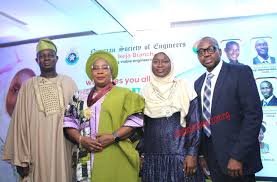The Federal Government, in partnership with leading global development institutions and private investors, has unveiled plans to empower no fewer than 750,000 women engaged in farming, agro-processing, aggregation, and other agricultural support services under the Kano State Special Agro-Industrial Processing Zone (SAPZ) initiative.
The ambitious programme, which forms part of the first phase of the national SAPZ rollout, is expected to directly benefit at least 1.5 million households across the state. The intervention targets key actors within the agricultural value chain, including smallholder farmers, rural-based agro-processors, traders, aggregators, and service providers, particularly women and youth, operating within Agro-Industrial Hubs (AIHs) and Agricultural Transformation Centres (ATCs).
The SAPZ project in Kano is a collaborative effort between the Federal Government of Nigeria, the African Development Bank (AfDB), the International Fund for Agricultural Development (IFAD), the Islamic Development Bank (IsDB), state governments, and private-sector stakeholders. Kano is among seven beneficiary states in the first phase, alongside Imo, Kaduna, Cross River, Kwara, Oyo, and Ogun, as well as the Federal Capital Territory (FCT).
Project Coordinator in Kano, Aminu Abdullahi Iliyasu, disclosed this during the launch of a sensitisation and community engagement campaign in eight additional Local Government Areas (LGAs) being integrated into the SAPZ programme. The affected LGAs include Dawakin Kudu, Kumbotso, Tofa, Gwarzo, Madobi, Shanono, Minjibir, and Gabasawa. These new areas follow the successful pilot implementation in Kura and Bagwai LGAs, where the programme supported 1,000 farmers—500 focused on rice and 500 engaged in tomato farming.
According to Iliyasu, the awareness drive is aimed at enlightening local communities and stakeholders on the objectives and long-term benefits of the SAPZ initiative, while also mobilising grassroots participation.
He explained that the SAPZ is a holistic agro-industrialisation initiative designed to attract private-sector investments into value-added processing, with a strong focus on enhancing food security, creating employment, boosting Nigeria’s GDP, and reducing dependence on imports. The programme also aims to promote rural development and poverty reduction by connecting production clusters to processing centres through efficient logistics and support systems.
“SAPZ is about building a sustainable and inclusive agro-based economy,” Iliyasu noted. “We are empowering women and youth by creating opportunities for them across the agricultural value chain—whether as producers, processors, traders, or service providers.”
He added that the SAPZ model is market-driven and built on a value-chain approach that fosters collaboration between government agencies, farmer cooperatives, and the private sector to ensure sustainability and measurable impact.
With Kano being a major agricultural hub in northern Nigeria, the SAPZ initiative is expected to harness the region’s vast agricultural potential, improving livelihoods and strengthening the state’s role in national food production and agro-export.







